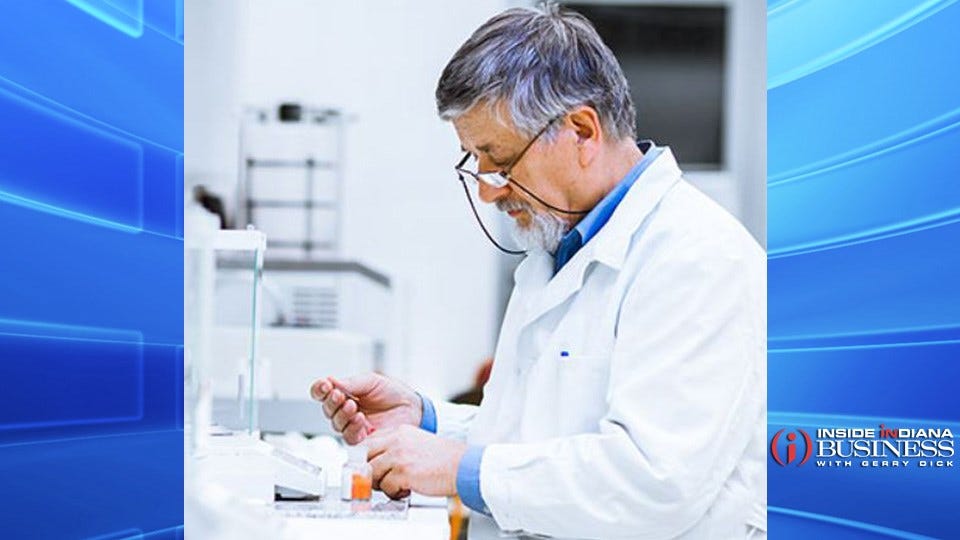First Patients Get Gut-Focused Autism ‘Drug’
 A Phase 1B clinical trial is underway
A Phase 1B clinical trial is underway
Subscriber Benefit
As a subscriber you can listen to articles at work, in the car, or while you work out. Subscribe NowA Fishers-based startup taking a unique approach to treating autism—via gut health—has achieved the major milestone of dosing the first patients. Unlike traditional pharmaceutical approaches, Scioto Biosciences Inc. aims to treat disorders by developing communities of “good” bacteria that exist in our bodies naturally. As Scioto was exploring its “bugs as drugs” approach to treat other conditions, Chief Executive Officer Dr. Joe Trebley says science unexpectedly opened a different door, revealing that the startup’s first product may actually be effective against autism.
The “bugs as drugs” method centers on the idea that good bacteria like probiotics “can serve in a meaningful therapeutic capacity,” says Trebley. SB-121 is the first product within Scioto’s novel microbiome platform, called Activated Bacterial Therapeutics. The main ingredient in SB-121 is a natural bacteria that babies are first exposed to in their mother’s breastmilk.
“It’s been fairly well-documented just in the last few years that the microbiome in patients with autism is very, very different than a healthy patient,” says Trebley. “The hypothesis is, by replacing and redeveloping that microbiome, you can improve the symptoms of autism. And we’re one of the first drugs to test that hypothesis.”
Scioto leaders were evaluating SB-121 in its pre-clinical stages for other indications when they discovered the bacteria was helping with the “gut-brain axis,” impacting things like social anxiety and other common symptoms of autism and behavioral issues. The finding inspired a pivot, and a Phase 1B clinical trial is now underway, evaluating the bacteria’s impact on 16 patients with autism spectrum disorder (ASD).
“One thing that many people may not know is that most patients with autism are also co-morbid with some type of GI (gastrointestinal) disorder,” says Trebley. “So it’s a patient population we think we can help potentially both from the behavioral side and with GI symptoms related to the disorder.”
The main purpose of the trial is to evaluate the safety of SB-121, but it could also reveal the drug’s impact on other factors, such as behavioral issues associated with ASD, as well as GI health, “to help start to understand the specific population we can help,” says Trebley.
“As we reach out to key opinion leaders and collaborators, the fact that SB-121 is not the typical pharma neuroscience drug makes them very excited,” says Trebley. “Because the main ingredient in SB-121 is what’s called commensal bacteria, you should have it [in your body] anyway, so we anticipate it being very safe. We think this could be a frontline therapy for patients with autism.”
Scioto says the $26.5 million Series B financing just one year ago from South Korea-based Genome & Company, one of the leading microbiome companies in the world, blazed a trail to dosing the first humans with SB-121.
“To have the trial up and running in just a year’s time, we couldn’t have done that with just capital; everything [Genome & Co] provided to help us do that was significant. With the partnership, we’re just pushing down on the accelerator now, so it’s pretty exciting,” says Trebley. “Anytime you go from a pre-clinical company to a clinical stage company, it’s a significant leap forward in sophistication.”
Scioto believes the clinical trial will prove SB-121 is safe, which will lay the groundwork to move into another patient population: babies in the neonatal intensive care unit (NICU). Trebley says SB-121 could treat GI disorders in newborns, such as feeding intolerance and necrotizing enterocolitis, a serious GI problem that mostly affects premature babies.
“What we anticipate with SB-121 is to be able to use it in multiple indications, particularly patients with infections or in the NICU,” says Trebley. “This [trial] will not only give us safety data to further [the autism application], but also safety data to support other indications for SB 121.”
The patients will likely be nearby; the clinical trial is taking place at Cincinnati Children’s Hospital Medical Center, led by principal investigator Dr. Craig Erickson, a renowned autism expert who previously worked at the Indiana University School of Medicine.
“The general interest in the study has been significant, and we think that’s indicative of the hope this patient population needs and their eagerness to try something like a probiotic approach,” says Trebley. “We think it’s a real market need, and we can’t get it to patients fast enough.”
Trebley says “the data and science” inspired the pivot from the NICU application to autism in adults.
Trebley explains how the clinical trial focused on adults with autism will pave the way for other applications in the NICU.
